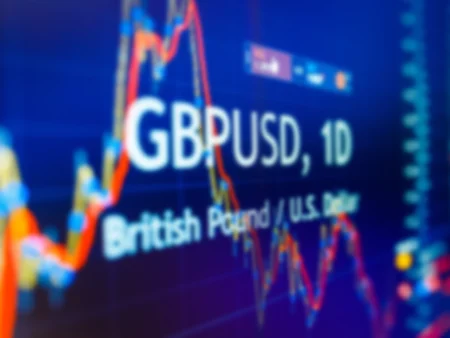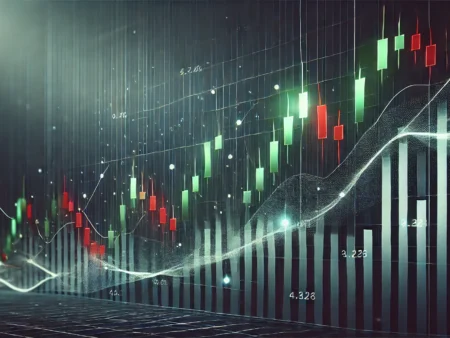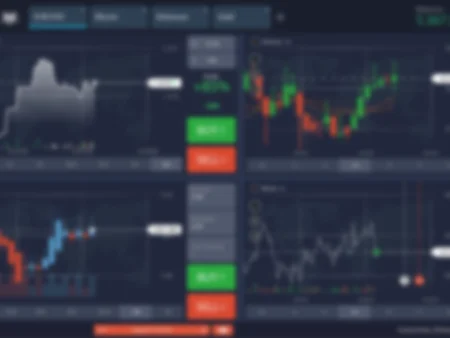What is the Indices Market and How to Trade Them
The indices market is a vital part of the global financial markets. Rather than trading individual stocks, commodities, or currencies, index trading allows you to invest in the performance of a group of assets, often referred to as a “basket” of stocks. Indices provide a snapshot of how a specific segment of the market is performing, making them a popular tool for traders looking to gauge the overall health of the economy or a specific sector.
1. What Are Indices?
An index (plural: indices) represents a collection of individual stocks or other assets. The purpose of an index is to measure the overall performance of a specific segment of the financial market. For example, an index can track the largest companies in a particular country or region, such as the S&P 500 (U.S.), FTSE 100 (U.K.), or DAX 40 (Germany).
Indices can be based on:
- Stock markets: Examples include the Dow Jones Industrial Average (DJIA), which measures the performance of 30 major U.S. companies.
- Sectors: The NASDAQ-100 focuses primarily on technology stocks, while other indices may track sectors like finance, healthcare, or energy.
- Commodities: Some indices track commodity prices, like the CRB Commodity Index, which tracks the performance of raw materials such as oil and gold.
2. How Are Indices Calculated?
The value of an index is determined by various factors, but most are weighted averages of the components (companies) that make up the index. Two common methods of calculating an index are:
- Price-weighted indices: The value of the index is influenced by the stock prices of its components. The Dow Jones Industrial Average is a price-weighted index, so companies with higher stock prices have more influence on the overall index movement.
- Market capitalization-weighted indices: In this method, the index value depends on the market capitalization (share price multiplied by the total number of shares outstanding) of the companies. The S&P 500 uses this method, meaning larger companies (like Apple or Microsoft) have more influence on the index value.
3. Why Trade Indices?
Indices offer several advantages for traders:
- Diversification: Since an index represents a collection of stocks, it inherently diversifies your exposure across multiple companies. This reduces the risk of individual stock volatility.
- Market Sentiment: Indices reflect the overall market sentiment, giving traders insights into whether a broader market or sector is bullish (rising) or bearish (falling).
- Liquidity: Indices markets are highly liquid, meaning traders can easily enter or exit positions with minimal price fluctuation due to market activity.
- Global Exposure: Indices allow traders to invest in global markets. For instance, you can trade the S&P 500 for U.S. exposure or the FTSE 100 for exposure to the U.K. market.
4. How to Trade Indices
There are several ways to trade indices, and the approach you choose depends on your trading strategy, risk tolerance, and investment goals. Common methods include:
a) Index CFDs (Contracts for Difference)
A CFD is a derivative that allows traders to speculate on the price movements of an index without owning the underlying assets. When trading index CFDs, you are essentially entering a contract with a broker to settle the difference between the opening and closing price of the index.
- Going Long (Buying): If you believe the index will rise in value, you can go long. If the index price increases, you can sell the CFD for a profit.
- Going Short (Selling): If you believe the index will fall, you can go short. If the price drops, you can buy back the index at a lower price and make a profit on the difference.
CFD trading is popular because it allows traders to use leverage, enabling them to control larger positions with smaller capital. However, leverage amplifies both potential gains and losses.
b) Index Futures
Index futures are contracts that require the buyer to purchase or the seller to sell an index at a specified price on a future date. Unlike CFDs, which can be closed at any time, futures have an expiration date.
- Futures are commonly used by institutional traders and professional investors to hedge against market risks or speculate on the direction of an index.
- Futures markets are highly liquid, and indices like the S&P 500, NASDAQ, and FTSE 100 all have associated futures contracts.
c) Exchange-Traded Funds (ETFs)
An ETF is a fund that trades on a stock exchange and tracks the performance of an index. When you buy shares in an ETF, you are investing in a portfolio designed to replicate the performance of a specific index.
- For example, the SPDR S&P 500 ETF (SPY) tracks the S&P 500 Index. Buying a share in this ETF gives you exposure to all the companies in the S&P 500.
- ETFs can be bought and sold like individual stocks, making them a convenient way for retail traders to invest in indices.
d) Options on Indices
Options are another form of derivative that gives you the right (but not the obligation) to buy or sell an index at a specified price before a certain date. Options are often used to hedge positions or speculate on market volatility.
There are two main types of options:
- Call options: Give the holder the right to buy the index at a predetermined price (strike price).
- Put options: Give the holder the right to sell the index at a predetermined price.
Options trading can be complex and is typically used by more experienced traders.
5. Risks and Considerations in Index Trading
While trading indices can offer diversification and broad market exposure, there are inherent risks, including:
- Leverage Risks: Both CFDs and futures allow traders to use leverage, which magnifies both profits and losses. Traders need to be cautious about using leverage and ensure they have sufficient risk management strategies in place.
- Market Volatility: Indices can experience significant volatility, especially during times of economic uncertainty or geopolitical events. Traders need to be prepared for rapid price movements.
- Overnight Costs and Expiry: Holding leveraged positions overnight can incur fees, and futures contracts have expiry dates, meaning they must be settled before the contract ends.
- Geopolitical and Economic Factors: Indices are sensitive to global events such as interest rate changes, political decisions, economic reports, and corporate earnings announcements.
6. Conclusion
The indices market provides traders with a unique opportunity to gain exposure to the broader market or specific sectors without having to buy individual stocks. Whether through CFDs, futures, ETFs, or options, index trading allows you to diversify your portfolio, capitalize on market trends, and manage risk more effectively. However, like any form of trading, it requires a solid understanding of market forces and risk management strategies.
For traders looking to speculate on broader market trends or hedge their portfolios, index trading offers an efficient and flexible way to achieve these goals.













